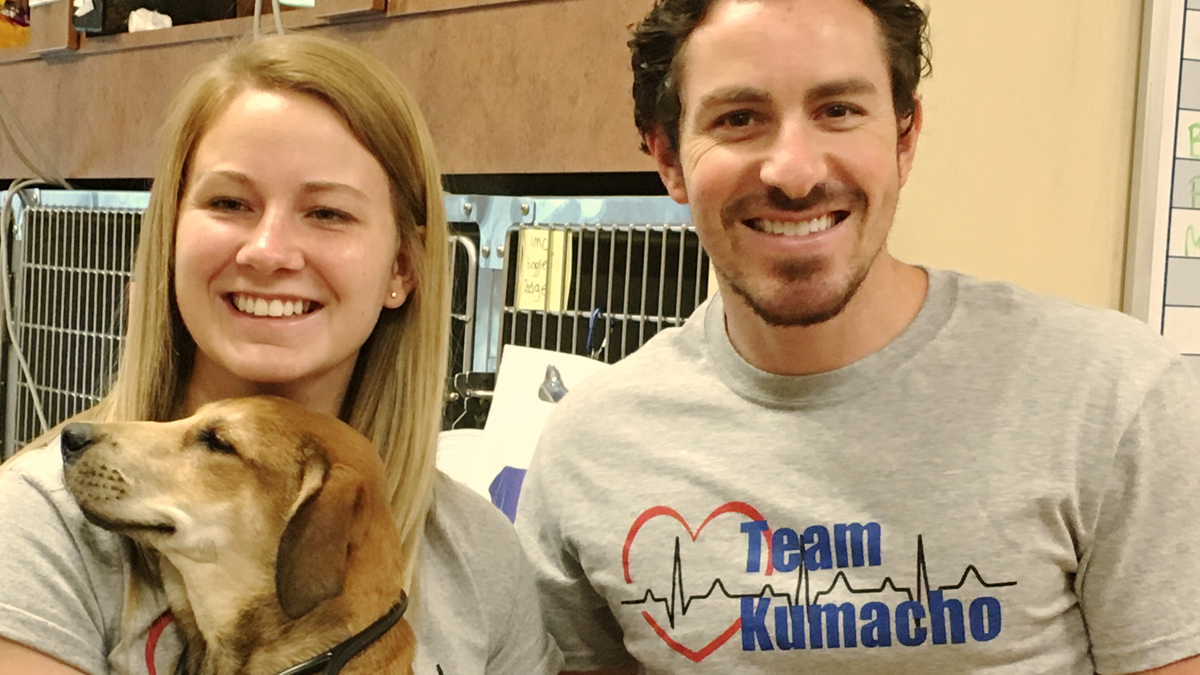If you have a dog as a pet, you don’t want to meet Jake Jacobson, DVM, DACIM … until you do.
That’s because unlike even the best neighborhood veterinarian, who is very important to see regularly to monitor your dog’s wellness and treat a host of cuts, scrapes, common disorders and even broken bones, Dr. Jacobson is a heart specialist.
A staff member at Veterinary Specialty Care in Mount Pleasant, Dr. Jacobson is a Clemson graduate who earned his veterinary degree from the University of Georgia. He added an internship in small animal medicine and surgery at Colorado State University, a second internship at Florida Veterinary Specialists and a three-year cardiology residency at the Animal Medical Center in New York.
If Fido has fleas or mange, you’ll never hear about Dr. Jacobson. But if your regular vet detects signs of possible heart issues, he’s your guy.
What are some of the signs that your pooch may be suffering from heart trouble? They include coughing, trouble breathing, weakness, lethargy and even fainting.
Of course, those symptoms may indicate something entirely different or nothing at all. That’s why Dr. Jacobson highly recommends routine visits to your pet’s veterinarian. He or she is the one who knows your dog best and is in the best position to refer your animal companion to Veterinary Specialty Care if sophisticated imaging techniques such as an echocardiogram or additional treatments are required.
What’s odd about this whole process is that heartworms, a fairly common canine ailment in the South – and now spreading throughout the United States with the mosquitos that carry it – are rarely a cause for concern to a cardiologist. According to Dr. Jacobson, your regular vet is well-qualified to treat this condition, and it can generally be averted in the first place with a simple pill, usually administered once a month. But consistency is important, because heartworms can seriously affect your dog’s quality of life by damaging the heart and lungs.
Heartworm patients are a small percentage of Dr. Jacobson’s practice these days. On a daily basis, the doctor more commonly sees older dogs and cats with symptoms of advanced heart disease.
Dr. Jacobson noted that the major type of heart disease humans suffer is coronary artery disease caused by lifestyle choices that lead to plaque development that can clog arteries and cause heart attacks.
“Atherosclerosis is a very rare condition in dogs,” he said. “They process lipids – fats – differently than we do.”
Instead, some dogs have congenital heart problems, while others acquire heart disease as they age. Some pets may be asymptomatic. Others may be referred to Dr. Jacobson for diagnosis and treatment of heart muscle diseases – cardiomyopathy – or valvular disorders. He noted that “in dogs, the most common condition would be acquired valve disease.”
Dogs can have congenital conditions such as stenotic valves, which can be remedied by catheter-based procedures such as a valvuloplasty, which is similar to angioplasty in people.
“However, many of the patients I see have acquired valve disease – a disease that is diagnosed with an echocardiogram that helps guide treatment decisions, usually medical management, as opposed to surgery,” Dr. Jacobson said.
Occasionally, dogs can even receive heart pacemakers. They are identical to human pacemakers, are often donated by medical equipment manufacturers and are suitable even for smaller dogs.
Another heart condition that affects dogs is dilated cardiomyopathy, where the heart becomes enlarged, weak and pumps poorly. This can be diagnosed through imaging; its root causes may include dietary deficiency, endocrine disease or thyroid disorders.
Acknowledging that the cost of veterinary specialty care can be “an eye-opener” to pet owners, Dr. Jacobson observed that these costs are still well below those of equivalent human medicine, “but most people don’t have medical insurance for their pets so it’s all out-of-pocket.”
That said, the doctor believes that the value of having a specialty pet care facility nearby is not just to pets but to their owners and the other veterinarians in the surrounding community who can access these highly-trained professionals to provide state-of-the-art treatments for their canine patients.
By Theresa Stratford







